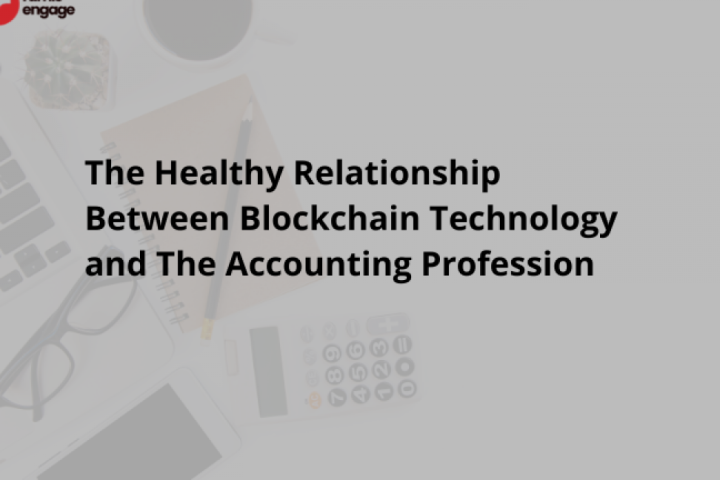Blockchain is a foundational change in how financial records are created, kept, and updated. This seemingly disruptive technology creates a kind of ‘universal entry bookkeeping’, where a single entry is shared identically and permanently with every single participant. The use of blockchain for accounting use-cases is hugely promising. From simplifying the compliance with regulatory requirements to enhancing the prevalent double-entry bookkeeping.
More importantly, firms such as MTN Group, and Standard Chartered Bank across the globe are keenly looking into this technology that is dubbed the next thing after the inception of the internet. According to Juniper Research, blockchain technology is being considered by more than half of big corporations. It found that 57 percent of large corporations with more than 20,000 employees, were either actively considering or in the process of deploying blockchain.
The key features of blockchain are that:
- New transactions originate with one user but propagate to a network of identical ledgers, without a central controller;
- All transactions and records are permanent, unable to be tampered with or removed; and
- Many blockchains are programmable, allowing for automation of new transactions and controls via ‘smart contracts’.
The noble accounting profession is not immune from challenges.
Below are some of the current challenges in modern accounting
- The current regime relies upon managers to swear that their books are in order. American International Group (AIG), Lehman Brothers, WorldCom, Tyco, and Toshiba show management does not fully act with integrity.
- Human error is a leading cause of accounting mistakes, according to Accounting Web, nearly 28% of professionals reported that people plugged incorrect data into their firm’s enterprise system.
- New rules such as Sarbanes-Oxley have done little to curb accounting.
- Traditional accounting methods can’t reconcile new business models.

In light of the aforementioned challenges of the accounting profession, blockchain technology provides us with immense hope geared towards strengthening the very values that make the profession relevant; trust, integrity, confidentiality, and accuracy. Opportunely, blockchain has the potential to enhance the accounting profession by reducing the costs of maintaining and reconciling ledgers and providing absolute certainty over the ownership and history of assets.
Below are some of the key ways blockchain technology can be applied to the accounting profession
Interestingly, blockchains enable impeccable record keeping. They can be used to create a clear and traceable timeline of who did what and when. Blockchain-enabled record keeping will hugely relieve auditors or bookkeepers of the challenges that emanate in their attempt to interpret the past. In contrast, the ability of blockchain to record everything accurately may make accountants surplus to requirements.
Furthermore, instead of keeping separate records based on transaction receipts, companies can write their transactions directly into a joint register, creating an interlocking system of enduring accounting records. With blockchain technology, all entries are distributed and cryptographically sealed, and falsifying or destroying them to conceal activity is practically impossible.
To auditors, auditing is not just checking the detail of parties in a transaction and the monetary amount involved, but also how it is recorded and classified. Blockchain technology makes these activities fewer challenges. Auditors will have more time to focus on these questions such as “If a transaction credits cash, is this outflow due to cost of sales or expenses, or is it paying a creditor, or creating an asset?”.
In light of integrity, blockchain makes it possible to prove the integrity of digital files with immense ease. This is executed by generating a hash string that represents the digital fingerprint of the digital file. Then again, that fingerprint is immutably timestamped by writing it into a block of chains through a transaction. Subsequently, the integrity of such a transaction can be proven by comparing fingerprints for records retrieval.
Furthermore, blockchain technology allows for “smart contracts” in collaboration with the assistance of artificial intelligence (i.e. automation). For example, setting up an invoice to automatically pay for itself after confirming the receipts of goods in consultation with the firms’ bank accounts involved. It is more than important to note that firms must be mindful of the rationale for implementing or integrating blockchain technology into their business structures.
Below are some of the challenges where blockchain might be an appropriate solution for a firm
- Firms where several participants don’t have institutional trust in one another;
- Firms where the desire to work without an intermediary (either because of cost or because one isn’t available) is needed; and
- Firms where the need for a complete definitive log of transactions is paramount
In the end, blockchain has a huge tendency of becoming a foundational technology. It is also evident that blockchain has a positive implication for the noble accounting profession. Clearly, it will take years –possibly even decades- for blockchain to be reasonably and fully developed, standardized, and integrated into the fabric of the internet and financial systems.
